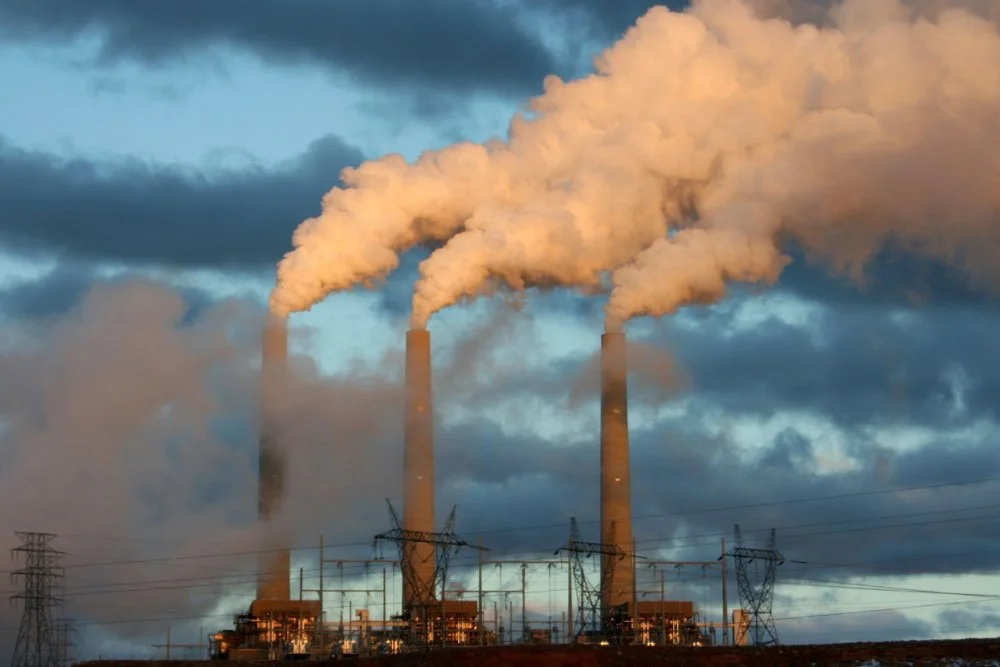Hold Your Applause for ExxonMobil’s Self-Serving Climate Donation
/photo: Dafinchi/shutterstock
When an oil and gas company makes a donation that signals it’s ready to support climate action, it’s tempting to celebrate—praising them as level-headed adults in the room, ready to come to the table and find solutions.
But such corporate giving must be held to the highest level of scrutiny. That’s true in the case of ExxonMobil’s $1 million donation to a carbon tax advocacy group, which is minuscule for a company of its size, and ultimately serves its own best interests.
That’s because, while the donation is largely being cast as a positive step toward climate legislation, the plan it supports is not only insufficient, it would also free the industry from EPA regulations and legal liability.
The two-year donation is not a charitable gift, as the funds will go toward Americans for Carbon Dividends, a 501(c)(4) social welfare organization to which donations are usually not tax-deductible, given they can support lobbying. It does, however, reflect major concerns in corporate philanthropy, namely, that apparent generosity can provide cover for much larger negative impacts, and that donations are often a way to exert power.
Pennies for Climate Policy
Even if we were to assume that this donation was made in the best interests of fighting climate change, it is hard to overstate just how tiny this donation is to a company like ExxonMobil. Especially considering how otherwise culpable the oil and gas giant is in the climate crisis.
ExxonMobil is one of the largest and most profitable corporations in history, and while the company will point out some climate-related research and development it supports, the core of that profit is providing a form of energy that happens to be cooking the planet. That’s its business model.
The company made $19.7 billion in net income in 2017, so a donation of $500,000 in a year ($1 million over two years) to support climate policy is less than 0.003 percent of that. In fact, the donation is less than 3 percent of the $17.5 million annual compensation the company gives to just one single person, CEO Darren Woods.
There are many numbers like that we could throw around, but an important one is that in the past 10 years, the corporation spent more than $155 million on lobbying, $11.4 million in 2017 alone.
I’m not privy to what those meetings were like, but I suspect lobbyists weren’t pushing that hard to reduce carbon emissions. Senator Sheldon Whitehouse has a better idea than I do, though, and in April, he wrote to the Houston Chronicle, “In my Senate world, every ounce of Exxon’s lobbying and electioneering effort remains implacably deployed against any climate action, and specifically against the carbon emissions pricing Exxon claims to support.”
It wouldn’t be the first time ExxonMobil sent conflicting messages on climate change. As multiple reporting and research efforts have concluded in recent years, while the company has been aware of and researching the risks of climate change for decades, external communications and funding of outside groups were actively sowing doubt about the issue—now one of the subjects of lawsuits against the company.
The company seems to have backed away from such campaigns and gradually, publicly moved toward support for certain kinds of climate action, like a carbon tax. But if this is what an oil giant supporting climate policy looks like, it’s wholly unimpressive.
Dodging Regulation and Liability
The plan that ExxonMobil is backing, while quite insufficient on its own, would let oil and gas companies off the hook for other federal regulations and legal action.
Americans for Carbon Dividends supports a proposal called the Baker-Shultz plan, which would levy a revenue-neutral tax on carbon and then divvy up the money in uniform checks to the public. There are a lot of criticisms of this particular formulation of a carbon tax, and David Roberts makes a good case for why this is a pretty lousy policy. For one, at $40 a ton with an undefined rate of increase, it’s small, much smaller than the amount that the IPCC’s latest report and other studies say is effective.
But most troubling is the “final pillar” of the plan, “elimination of regulations that are no longer necessary,” and that “much of the EPA’s regulatory authority over carbon dioxide emissions would be phased out, including an outright repeal of the Clean Power Plan.” And the kicker, an “end to federal and state tort liability for emitters.”
The plan essentially says that this carbon tax will be plenty (it won’t!), so we can just get rid of EPA regulations on carbon emissions and legal liability for the fossil fuel industry. Not a bad deal for ExxonMobil.
To be clear, carbon taxes (there are many kinds) and industry action are not bad things. In fact, both are likely necessary in some form. And I suppose it’s somewhat encouraging to see Big Oil backing climate policy of any kind.
But the intent of the donation is clear—gain some favorable attention as a company that has seen the light and supports climate action (check), give an edge to a gentler form of climate regulation, and use it to evade other consequences.
As states and eventually the federal government get increasingly serious about climate policy, more members of industry are likely to see the writing on the wall and make such gestures, including in the form of donations. That’s a good sign that things are changing.
But with all corporate giving, you’ve got to scrutinize what the company’s doing with the other hand (drilling and lobbying, in this case). We should be highly skeptical of the motives behind such donations from industry, especially given the track record. That means not letting them off the hook, and certainly not letting them dictate the terms using the equivalent of pocket change.







































